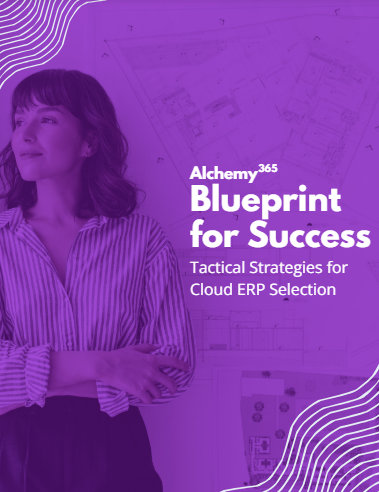Understanding the Need for Specialized Accounting Software in Construction
The construction industry operates in a unique and dynamic environment, which requires specialized accounting software to effectively manage financial processes. Let’s explore the reasons why construction businesses need accounting software tailored specifically to their industry.
- Complex Financial Management: Construction projects involve multiple stakeholders, complex contracts, and diverse revenue streams. Traditional accounting software may not have the necessary features to handle the intricacies of construction financial management. Specialized accounting software can manage job costing, track expenses, and handle project-specific billing requirements.
- Accurate Job Costing: Job costing is a critical aspect of construction accounting. It involves tracking and allocating costs to specific projects or jobs. Specialized accounting software provides robust job costing functionality, allowing you to accurately track labor, materials, equipment, subcontractor costs, and other project-related expenses. This enables you to monitor profitability and make informed decisions regarding resource allocation and pricing.
- Budgeting and Forecasting: Construction projects often have complex budgets that need to be closely monitored. Specialized accounting software offers budgeting and forecasting tools that allow you to create detailed project budgets, track actual costs against the budget, and generate accurate financial forecasts. This helps you identify potential cost overruns, manage cash flow, and make proactive adjustments to ensure project profitability.
- Project Management Integration: Construction accounting software can seamlessly integrate with project management systems, creating a holistic view of your projects. This integration allows for real-time updates on project progress, cost tracking, change order management, and collaboration between accounting and project teams. This streamlined communication enhances efficiency, reduces errors, and improves overall project success.
- Industry-Specific Reporting: Construction businesses often need to generate industry-specific reports for stakeholders such as clients, subcontractors, and regulatory bodies. Specialized accounting software offers pre-built templates and customizable reporting capabilities to generate comprehensive financial reports, including financial statements, job cost reports, WIP (Work in Progress) reports, and certified payroll reports. These reports ensure compliance with industry regulations and provide valuable insights into business performance.
- Streamlined Payroll and Compliance: Construction companies often deal with unique payroll requirements, such as prevailing wage rates, union benefits, and certified payroll reporting. Specialized accounting software streamlines payroll processes, automates wage calculations, and generates accurate payroll reports. This ensures compliance with labor laws, reduces manual errors, and saves time on administrative tasks.
In conclusion, specialized accounting software for construction is essential to meet the unique financial management needs of the industry. It enables accurate job costing, effective budgeting and forecasting, seamless integration with project management systems, industry-specific reporting, and streamlined payroll processes. By investing in the right accounting software, construction businesses can enhance their financial efficiency, improve project profitability, and drive overall success.
Key Features to Look for in Accounting Software for Construction
When searching for accounting software for construction, it is crucial to consider the key features that will best meet the specific needs of your business. Here are the essential features to look for when evaluating accounting software options for construction:
- Project Management Capabilities: Construction projects involve various tasks, deadlines, and stakeholders. Look for software that offers robust project management features, such as project tracking, scheduling, document management, and collaboration tools. These features enable you to effectively manage project workflows, track progress, and ensure timely completion.
- Job Costing Functionality: Accurate job costing is vital in construction accounting. The software should have the capability to track costs associated with specific projects or jobs, including labor, materials, equipment, subcontractor expenses, and overhead costs. This feature allows you to monitor project profitability, identify cost overruns, and make informed decisions regarding resource allocation.
- Budgeting and Forecasting Tools: Construction projects often have complex budgets that need to be closely monitored. Look for software that provides robust budgeting and forecasting functionalities. This includes the ability to create detailed project budgets, track actual costs against the budget, generate accurate financial forecasts, and analyze budget variances. These tools help you manage cash flow, identify potential issues, and make proactive adjustments to ensure project profitability.
- Integration with Other Systems: Construction businesses often utilize multiple software systems, such as project management, estimating, and procurement tools. Ensure that the accounting software you choose can seamlessly integrate with these systems to avoid duplicate data entry and streamline processes. Integration allows for real-time data synchronization, reducing errors and improving overall operational efficiency.
- Reporting and Analytics: Comprehensive reporting and analytics capabilities are essential for construction accounting. Look for software that offers pre-built templates and customizable reporting options to generate financial statements, job cost reports, WIP (Work in Progress) reports, cash flow statements, and other critical financial reports. The software should also provide robust analytics features to help you gain insights into project performance, identify trends, and make data-driven decisions.
- Mobile Accessibility: In the construction industry, mobility is often a necessity. Look for accounting software that offers mobile accessibility, allowing you to access important financial data and perform essential tasks while on-site or on the go. Mobile apps or responsive web interfaces enable you to stay connected and make informed decisions in real-time.
- Security and Data Backup: Construction businesses handle sensitive financial data that must be protected. Ensure that the accounting software you choose has robust security measures, such as encryption, user access controls, and regular data backups. This ensures the safety and integrity of your financial information.
- Ease of Use and Scalability: Consider the ease of use and scalability of the accounting software. It should have an intuitive interface that is easy to navigate and understand, even for users with limited accounting knowledge. Additionally, the software should be scalable to accommodate the growth and changing needs of your construction business.
By considering these key features, you can select accounting software that aligns with the unique requirements of your construction business. Remember to prioritize the features that are most critical to your operations and ensure compatibility with your existing software systems. Making an informed decision will help streamline your financial processes, improve project management, and drive the success of your construction business.
How to Choose the Best Accounting Software for Your Construction Business
Choosing the best accounting software for your construction business is a critical decision that can significantly impact your financial management processes. To ensure you select the right software solution, consider the following factors:
- Assess Your Business Needs: Start by evaluating your specific business requirements. Consider factors such as the size of your construction business, the number of projects you handle, the complexity of your financial processes, and the integration needs with other software systems. Identifying your unique needs will help you narrow down the options and focus on the software solutions that best align with your requirements.
- Compare Pricing and Features: Consider the pricing structures of different accounting software options. Some software may charge a one-time fee, while others may have a subscription-based model. Evaluate the features included in each pricing plan and determine which ones are crucial for your business. Strike a balance between affordability and the necessary features to ensure you are getting the best value for your investment.
- Consider Ease of Use: Look for accounting software that is user-friendly and intuitive. Construction businesses often have employees with varying levels of accounting expertise, so it is important to choose software that can be easily adopted by your team. Consider factors such as the interface design, ease of data entry, and availability of training resources or support.
- Check User Reviews and Ratings: Research user reviews and ratings for the accounting software solutions you are considering. This will provide insights into the experiences and satisfaction levels of other construction businesses that have used the software. Focus on reviews from businesses similar to yours to get a more accurate understanding of how well the software performs in a construction environment.
- Integration with Existing Systems: Evaluate how well the accounting software integrates with your existing systems, such as project management, estimating, or procurement tools. Seamless integration eliminates the need for manual data entry and ensures that information flows smoothly between different software applications. This streamlines your processes, reduces errors, and improves overall efficiency.
- Consider Support and Training Options: Assess the level of support and training provided by the software vendor. Look for options such as online tutorials, user guides, customer support channels, and training programs. Adequate support and training will enable your team to effectively utilize the software and maximize its benefits.
By considering these factors and conducting thorough research, you can choose the best accounting software for your construction business. Remember to prioritize your specific needs, compare pricing and features, evaluate ease of use, check user reviews, consider integration capabilities, and assess support and training options. Making an informed decision will help streamline your financial processes, enhance project management, and drive the success of your construction business.
Implementation and Training for Your New Accounting Software
Implementing a new accounting software system in your construction business requires careful planning and effective training to ensure a smooth transition. Here are some key considerations for implementation and training:
- Preparing Your Team for the Transition: Inform your team about the upcoming change and explain the benefits of the new accounting software. Assign a project manager or implementation team to oversee the process and communicate the timeline and expectations. Ensure that all relevant stakeholders, including accounting staff, project managers, and executives, are involved in the planning and decision-making process.
- Training and Support Options: Determine the training needs of your team and explore the training options provided by the software vendor. This may include on-site training, webinars, video tutorials, user guides, or online support resources. Tailor the training program to the roles and responsibilities of each team member to ensure they have the necessary knowledge to effectively use the software.
- Potential Challenges and How to Overcome Them: Anticipate potential challenges that may arise during the implementation process and develop strategies to overcome them. Common challenges include resistance to change, data migration issues, and software compatibility problems. Address these challenges proactively by providing clear communication, offering technical support, and conducting thorough testing before fully transitioning to the new software.
- Data Migration and Integration: Plan for the migration of your existing data into the new accounting software. Ensure that your vendor provides guidance and support for this process to avoid data loss or corruption. Additionally, verify that the new software can integrate with your other systems, such as project management or estimating software, to streamline data flow and avoid duplicate entry.
- Testing and Quality Assurance: Conduct thorough testing of the new accounting software before going live. Test various scenarios, such as entering transactions, generating reports, and performing critical financial processes. This ensures that the software operates as expected and that any issues or bugs are identified and resolved before implementation.
- Phased Implementation Approach: Consider implementing the accounting software in phases rather than all at once. This allows for a more manageable transition and provides an opportunity to address any issues before moving on to the next phase. Start with a pilot group or a specific project and gradually roll out the software to the entire organization.
- Ongoing Support and Evaluation: After the implementation, continue to provide ongoing support to your team. Encourage feedback and address any concerns or questions that arise. Regularly evaluate the performance of the software and its impact on your financial processes. This will help identify areas for improvement and ensure that the software continues to meet the needs of your construction business.
By carefully planning the implementation process and providing effective training and support, you can ensure a successful transition to your new accounting software. With proper preparation and ongoing evaluation, you can streamline your financial processes, enhance productivity, and drive the success of your construction business.




